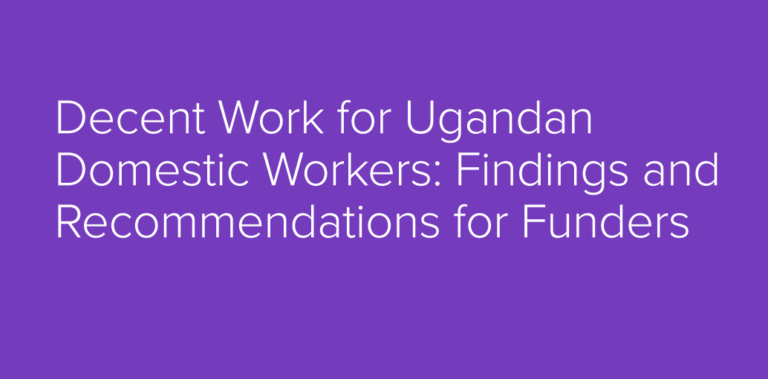In Uganda and Kenya, thousands of Ugandan children work as domestic workers. Despite laws prohibiting employment of children under the age of 16 in Uganda, there is little enforcement in the domestic work sector. While poverty drives children to enter domestic work, employers also prefer to hire child domestic workers because they can pay them less and perceive them to be more compliant.
In August through October 2022 ICF International, Makerere University, Pan Africa Christian University, with support from the Global Fund to End Modern Slavery and the Norwegian Agency for Development Cooperation conducted scoping research to identify potential interventions to reduce exploitation of child domestic workers. This research informed recommendations in three main areas: prevention of child labor in domestic work, protection of domestic workers, and transitioning domestic workers into education or other work.

